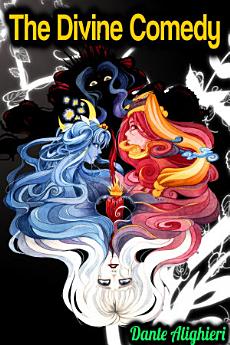The Divine Comedy - Dante Alighieri
2021年7月 · Phoemixx Classics Ebooks
电子书
777
页
family_home
符合条件
info
report评分和评价未经验证 了解详情
关于此电子书
This first volume of Robert Durling's new translation of The Divine Comedy brings a new power and accuracy to the rendering of Dante's extraordinary vision of Hell, with all its terror, pathos, and humor. Remarkably true to both the letter and spirit of this central work of Western literature, Durling's is a prose translation (the first to appear in twenty-five years), and is thus free of the exigencies of meter and rhyme that hamper recent verse translations. As Durling notes, "the closely literal style is a conscious effort to convey in part the nature of Dante's Italian, notoriously craggy and difficult even for Italians." Rigorously accurate as to meaning, it is both clear and supple, while preserving to an unparalleled degree the order and emphases of Dante's complex syntax.The Durling-Martinez Inferno is also user-friendly. The Italian text, newly edited, is printed on each verso page; the English mirrors it in such a way that readers can easily find themselves in relation to the original terza rima. Designed with the first-time reader of Dante in mind, the volume includes comprehensive notes and textual commentary by Martinez and Durling: both are life-long students of Dante and other medieval writers (their Purgatorio and Paradiso will appear next year). Their introduction is a small masterpiece of its kind in presenting lucidly and concisely the historical and conceptual background of the poem. Sixteen short essays are provided that offer new inquiry into such topics as the autobiographical nature of the poem, Dante's views on homosexuality, and the recurrent, problematic body analogy (Hell has a structure parallel to that of the human body). The extensive notes, containing much new material, explain the historical, literary, and doctrinal references, present what is known about the damned souls Dante meets --from the lovers who spend eternity in the whirlwind of their passion, to Count Ugolino, who perpetually gnaws at his enemy's skull--disentangle the vexed party politics of Guelfs and Ghibellines, illuminate difficult and disputed passages, and shed light on some of Dante's unresolved conflicts.
作者简介
Dante Alighieri, or simply Dante (May 14/June 13 1265 September 13/14, 1321), is one of the greatest poets in the Italian language; with the comic story-teller Boccaccio and the poet Petrarch, he forms the classic trio of Italian authors. Dante Alighieri was born in the city-state Florence in 1265. He first saw the woman, or rather the child, who was to become the poetic love of his life when he was almost nine years old and she was some months younger. In fact, Beatrice married another man, Simone di' Bardi, and died when Dante was 25, so their relationship existed almost entirely in Dante's imagination, but she nonetheless plays an extremely important role in his poetry. Dante attributed all the heavenly virtues to her soul and imagined, in his masterpiece The Divine Comedy, that she was his guardian angel who alternately berated and encouraged him on his search for salvation.Politics as well as love deeply influenced Dante's literary and emotional life. Renaissance Florence was a thriving, but not a peaceful city: different opposing factions continually struggled for dominance there. The Guelfs and the Ghibellines were the two major factions, and in fact that division was important in all of Italy and other countries as well. The Pope and the Holy Roman Emperor were political rivals for much of this time period, and in general the Guelfs were in favor of the Pope, while the Ghibellines supported Imperial power. By 1289 in the battle of Campaldino the Ghibellines largely disappeared from Florence. Peace, however, did not insue. Instead, the Guelf party divided between the Whites and the Blacks (Dante was a White Guelf). The Whites were more opposed to Papal power than the Blacks, and tended to favor the emperor, so in fact the preoccupations of the White Guelfs were much like those of the defeated Ghibellines. In this divisive atmosphere Dante rose to a position of leadership. in 1302, while he was in Rome on a diplomatic mission to the Pope, the Blacks in Florence seized power with the help of the French (and pro-Pope) Charles of Valois. The Blacks exiled Dante, confiscating his goods and condemning him to be burned if he should return to Florence.Dante never returned to Florence. He wandered from city to city, depending on noble patrons there. Between 1302 and 1304 some attempts were made by the exiled Whites to retrieve their position in Florence, but none of these succeeded and Dante contented himself with hoping for the appearance of a new powerful Holy Roman Emperor who would unite the country and banish strife. Henry VII was elected Emperor in 1308, and indeed laid seige to Florence in 1312, but was defeated, and he died a year later, destroying Dante's hopes. Dante passed from court to court, writing passionate political and moral epistles and finishing his Divine Comedy, which contains the Inferno, Purgatorio, and Paradiso. He finally died in Ravenna in 1321.
为此电子书评分
欢迎向我们提供反馈意见。
如何阅读
智能手机和平板电脑
笔记本电脑和台式机
您可以使用计算机的网络浏览器聆听您在 Google Play 购买的有声读物。
电子阅读器和其他设备
如果要在 Kobo 电子阅读器等电子墨水屏设备上阅读,您需要下载一个文件,并将其传输到相应设备上。若要将文件传输到受支持的电子阅读器上,请按帮助中心内的详细说明操作。








